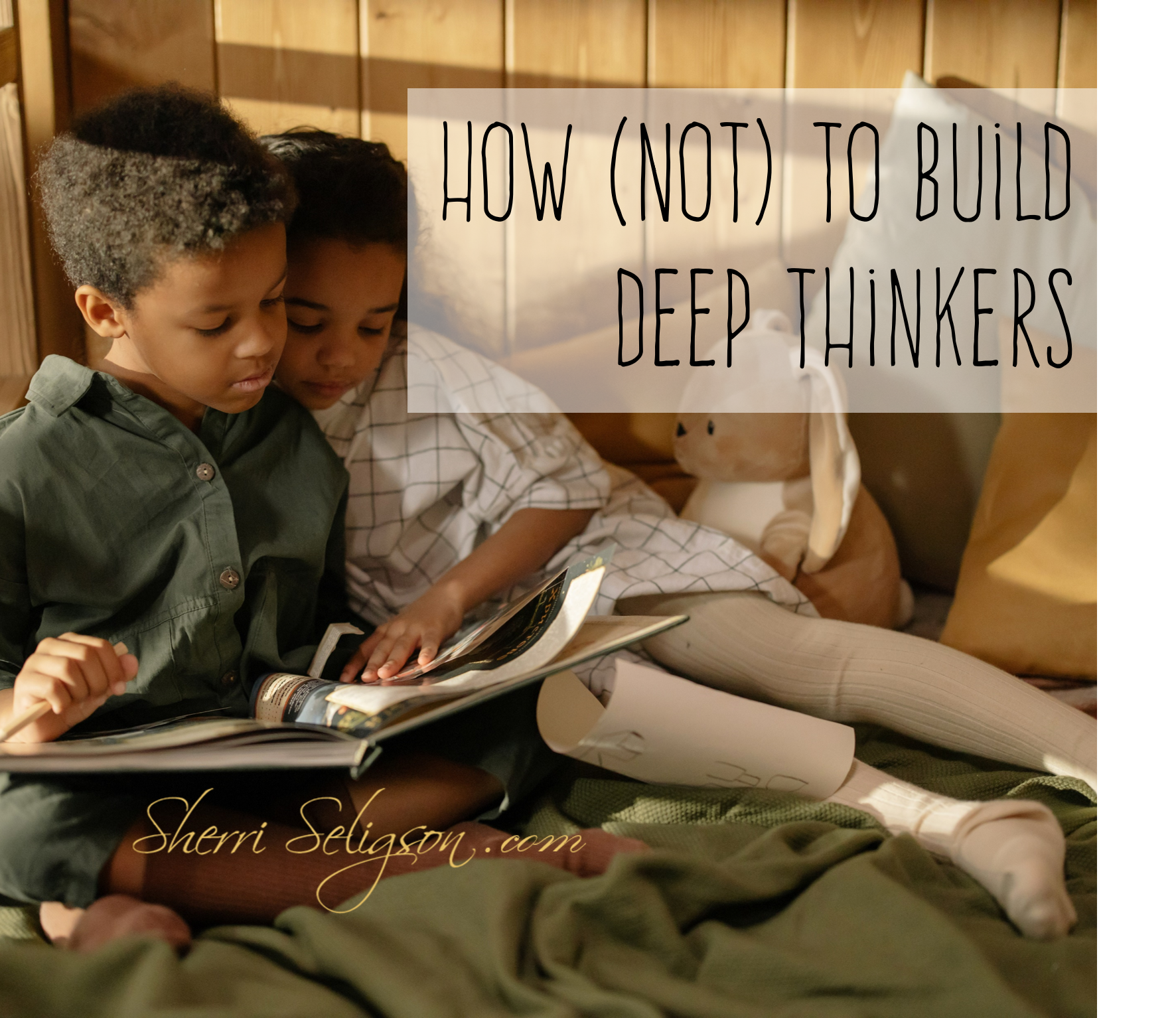
Over the holidays, I had several conversations with my kids that involved me asking a question, such as, “Who was the actor who played the supporting character in that movie we just watched?” Within minutes, they had the answer for me, thanks to their always-handy phone and its access to the Internet. No need to think about it at all!
It really didn’t matter what the subject material was…what time does the pizza place close; do they play rugby in Canada; which state has the coldest temperature forecast today; when did Renaissance architecture reach its heights (We have eclectic conversations!)… they provided an almost instant answer as a result of being in the digital age.

Now, I am not against technology, but often we use this ready-made access as a crutch, and it can hamper our children’s education.
Here are some issues we have to think about.
- Digital natives, or people under 40 years old, are less likely to store information in their minds. That’s because they know they have ready access to the Internet and see it as a free vending machine of information. They have less experience using libraries or texts to gather information and therefore don’t appreciate the vast store of information contained on the web. (Need to know how many teaspoons in a tablespoon? Just speak into your phone. No need to memorize that.)
- They tend to shorten their writing, using snippets of information and abbreviations. Heaven forbid that proper punctuation is used when writing a text to someone!
- Their dependence on spellcheck and word correction as they type actually makes them less likely to know proper word usage and spelling. Of course, they can get away with it when they text their friends or post tweets, but it is a poor presentation of themselves when they send an email or correspond with a potential employer.
- They aren’t reading as many books, and they have less of a desire to. With YouTube videos on practically any subject, streaming movies, plus informational snippets like TED Talks, why take the time to read anything? The idea of being “well read” is lost to many students.
- They gather their news and information about the world as it is parsed out to them. This means they are being actively cut off from the complete stories, relying on the media to let them know what is important, what is not, and how to think about it all. It’s so much easier!

All of these things contribute to dependence on technology which dulls the mind and creates individuals who don’t know how to reason or think for themselves. As a nation, we are losing the art of information gathering and appreciation of knowledge (not just looking stuff up). We are allowing our children to think less and click more.
How do we change that? Encourage reading…even if it is Peanuts comics. Have conversations more. Walk into a brick and mortar library and let them experience the joy of the information it contains. Teach grammar and spelling. Play word games together. Act out plays. All of this helps to build communication and thinking skills which will benefit them no matter what career direction they take.
Now let me be clear. I am NOT against using the internet, technology, or social media. (After all, I have a blog, don’t I?) I am just concerned that we are taking it for granted and relying on it too much.
Balance, friends.
Watch a funny You Tube video together and then follow it up with reading a short story out loud.
Purpose to provide your kids the educational balance they need, and they will be able to THINK!


2 Comments
Sherri, you articulate these ideas soundly. At the close of our Christmas Day we had a conversation around this very subject matter (not initiated by us) in which all the family members engaged; 20-something adult children, aunts, uncles, 80+ grandparents and my husband and I. It was rich and robust, benefiting us all. Keep sounding the alarm in such an encouraging way!
Thank you for the encouragement, Loisann. It is good to have these conversations with each other and our older children as well!